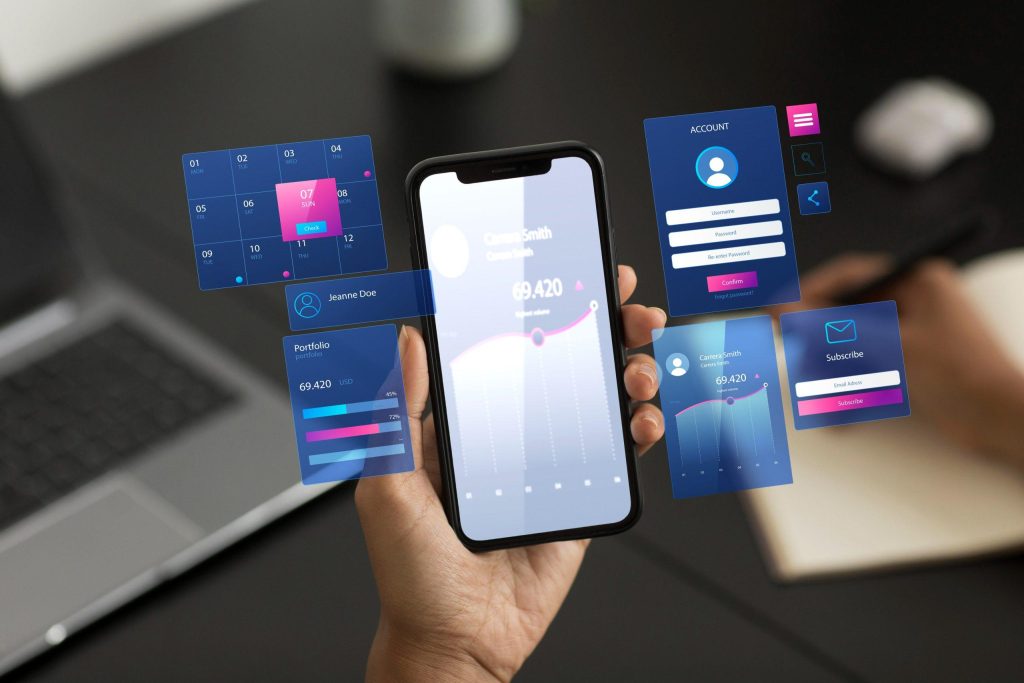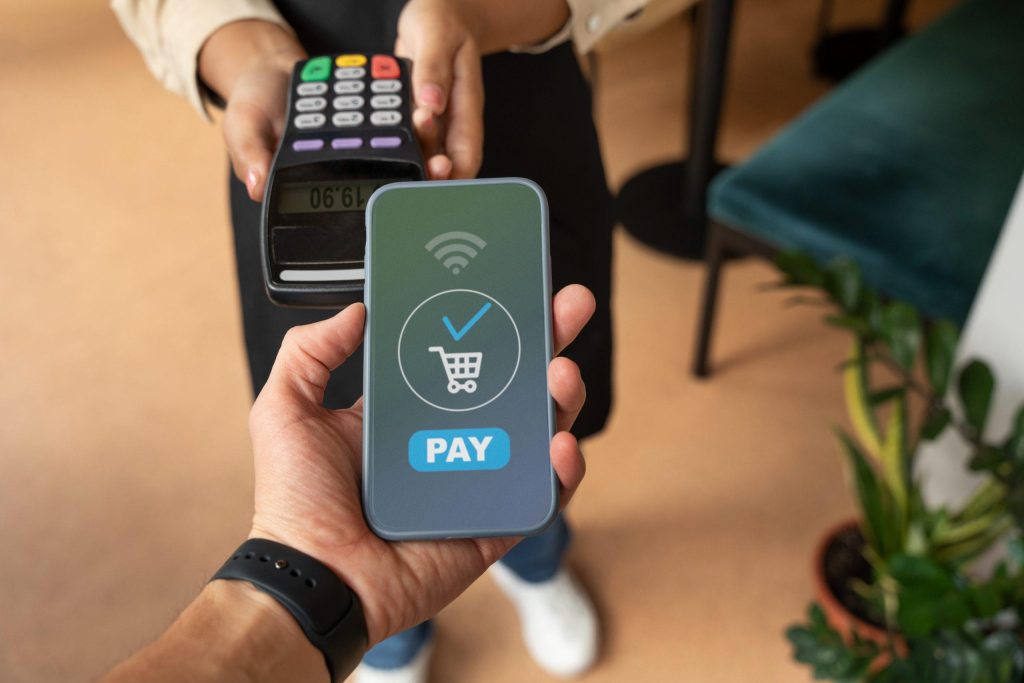Mobile App needs have become an essential tool for businesses looking to increase online presence, engage users, and drive sales. Whether it’s an e-commerce platform, a productivity tool, or a social network, successful mobile apps share certain core features that ensure they stand out in a crowded marketplace. If you’re in the process of developing a mobile app, understanding these must-have features can help elevate your project.
Top 10 Must-Have Features Every Successful Mobile App Needs
1. User-Friendly Interface (UI/UX Design)

One of the most critical factors determining an app’s success is its user interface and user experience. An intuitive and attractive design keeps users engaged and makes the app easy to navigate. The layout, navigation, buttons, and icons must be simple to use, enhancing the overall experience.
Why It’s Important:
A cluttered or confusing design can frustrate users, leading to uninstalls. Whether you’re building a mobile app for an e-commerce store using Shopify or a custom app with React Native, a well-designed interface helps users quickly understand how to use the app without needing a tutorial.
2. Cross-Platform Compatibility

In today’s mobile-first world, users expect apps to work seamlessly across different platforms. Whether it’s iOS or Android, your app must be compatible with both. Cross-platform development frameworks like React Native allow developers to create apps that work across various devices while maintaining performance and design consistency.
Why It’s Important:
Cross-platform compatibility ensures that you can reach a broader audience without the need to develop separate apps for different platforms, saving time and resources while offering a consistent user experience.
3. Offline Functionality

While most apps require an internet connection, incorporating offline functionality is a smart move. Users often find themselves in situations where they lack internet access, and apps that allow users to access key features offline will keep them engaged even in these scenarios.
Why It’s Important:
Whether it’s a WordPress development-based content app or a Shopify-powered e-commerce app, offering offline functionality allows users to continue browsing, reading, or shopping, even when they’re offline. This feature can significantly improve user satisfaction and retention rates.
4. Push Notifications

Push notifications are an essential feature for any mobile app, allowing businesses to communicate directly with users in real-time. However, it’s important not to overuse this feature, as too many notifications can annoy users and lead to app abandonment.
Why It’s Important:
Push notifications can be used to inform users about new offers, updates, and promotions, driving engagement. For example, if you’re running an online selling platform or an e-commerce store, push notifications can notify users about limited-time discounts or restocked items, boosting sales.
5. Fast Loading Time

Users expect apps to load within seconds. An app that takes too long to load will lose users quickly. Whether you’re offering an e-commerce solution or a service-based app, speed is key to keeping users engaged and providing a smooth experience.
Why It’s Important:
A slow app can lead to user frustration and eventual uninstallation. To ensure speed, focus on optimizing app performance through efficient coding and by reducing unnecessary bloat. This is especially critical for React Native app development or apps that handle large amounts of data.
6. Social Media Integration

Integration with social media platforms allows users to share content, log in, or interact with your app more easily. Features like social sharing, logging in with Facebook or Google, and in-app social engagement enhance the user experience and drive traffic to your app.
Why It’s Important:
Social media integration boosts online presence and encourages organic promotion of your app. For example, users can easily share products from a Shopify eCommerce site or blog posts from a WordPress development-based app, attracting more potential users.
7. Security and Data Privacy

With increasing concerns over data breaches and cyber-attacks, app users prioritize security and privacy. Any app that handles sensitive data—whether it’s payment information in an e-commerce app or personal details in a social app—must ensure strong security features like encryption, secure logins, and two-factor authentication.
Why It’s Important:
If users do not feel secure using your app, they won’t stick around. By prioritizing data security and compliance with privacy regulations (such as GDPR), you protect user data and build trust. For apps handling online selling or e-commerce development, secure payment gateways and data encryption are non-negotiable.
8. Search Functionality

For apps with large inventories, multiple services, or a wide array of content, having a robust search function is a must. Whether you’re building a WordPress content app or a Shopify e-commerce app, users must be able to find what they’re looking for quickly and easily.
Why It’s Important:
A well-implemented search feature improves the overall user experience by providing fast access to relevant information. In e-commerce apps, this feature can also help users locate specific products more efficiently, which can lead to increased sales.
9. In-App Payment Options

For any mobile app focused on online selling or e-commerce development, providing easy and secure in-app payment options is crucial. Whether it’s a Shopify eCommerce site or a custom-developed app, users should be able to make payments without leaving the app, using methods like credit cards, mobile wallets, or even cryptocurrency.
Why It’s Important:
Convenient and secure payment options lead to higher conversion rates. Streamlining the checkout process helps reduce cart abandonment, ensuring a seamless experience for users making purchases within the app.
10. Analytics and Insights

Finally, incorporating analytics into your app development process is key to tracking user behavior, understanding what features are most popular, and identifying areas for improvement. Whether your app is built using Laravel for backend functionality or React Native for the front-end, tracking how users interact with your app provides valuable data to help refine the user experience.
Why It’s Important:
Analytics allow you to measure the success of your app and make data-driven decisions. For instance, if you notice that users are spending more time on certain features, you can double down on those elements in future updates. For e-commerce apps, analytics can help you track customer journeys, allowing you to optimize the shopping experience.
Final Thoughts
Building a successful mobile app involves incorporating key features that meet the needs of today’s users. Whether it’s fast performance, cross-platform compatibility, or robust security, each feature contributes to the overall success of your app. At Panalinks, we have extensive experience in app development, specializing in React Native app development, e-commerce solutions like Shopify and WordPress, and Laravel development.
We specialize in mobile app development, with a focus on React Native app development, alongside web and e-commerce solutions including WordPress development, Shopify eCommerce sites, and Laravel development. Based on our experience, we’ve compiled a list of 10 essential features that every successful mobile app needs to ensure it meets the demands of modern users.
If you’re looking to develop a mobile app that stands out in the competitive market, write to us for expert guidance and custom solutions tailored to your business needs. Let us help you create an app that not only meets your users’ needs but exceeds their expectations.

